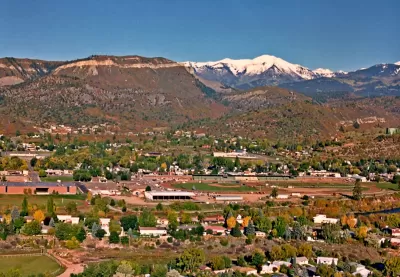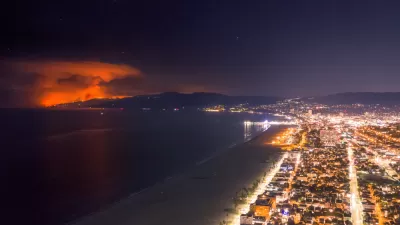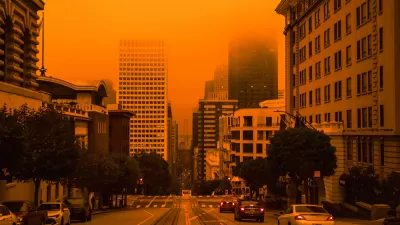Experts warn that more intense fires fueled by a warming climate are threatening an increasing number of Colorado's suburban communities.

The destructive firestorm that raged through Colorado last month, along with other major fires in the last few years, highlighted the need for added fire protection, known as "hardening," in all of Colorado's suburbs, say fire scientists and officials.
According to an article by Bruce Finley, researchers point to both climate change and the encroachment of flammable homes in fire-prone areas as factors driving more devastating fires and longer fire seasons. Rising temperatures and dry grass that would normally be buried under snow have been fueling fast-moving fires, forcing thousands of residents to evacuate and destroying more than 1,000 homes last year. Meanwhile, record high winds complicate firefighting efforts, sometimes grounding aircraft and rendering traditional tactics ineffective.
Officials and researchers are scrambling to understand how to prepare for the future and facilitate safe and speedy evacuations. With fires threatening "much wider areas than previously understood," land use will play an increasingly important role in protecting communities that were previously presumed safe.
The Colorado Fire Commission, made up of public safety officials, firefighters, law enforcement, and others, are working on a set of recommendations that could include changes in building codes to mandate non-flammable materials, zoning changes to limit construction in fire zones, and prescribed fires.
FULL STORY: Marshall firestorm shows Colorado suburbs now vulnerable as climate warms, “hardening” needed, experts say

Maui's Vacation Rental Debate Turns Ugly
Verbal attacks, misinformation campaigns and fistfights plague a high-stakes debate to convert thousands of vacation rentals into long-term housing.

Planetizen Federal Action Tracker
A weekly monitor of how Trump’s orders and actions are impacting planners and planning in America.

Chicago’s Ghost Rails
Just beneath the surface of the modern city lie the remnants of its expansive early 20th-century streetcar system.

Bend, Oregon Zoning Reforms Prioritize Small-Scale Housing
The city altered its zoning code to allow multi-family housing and eliminated parking mandates citywide.

Amtrak Cutting Jobs, Funding to High-Speed Rail
The agency plans to cut 10 percent of its workforce and has confirmed it will not fund new high-speed rail projects.

LA Denies Basic Services to Unhoused Residents
The city has repeatedly failed to respond to requests for trash pickup at encampment sites, and eliminated a program that provided mobile showers and toilets.
Urban Design for Planners 1: Software Tools
This six-course series explores essential urban design concepts using open source software and equips planners with the tools they need to participate fully in the urban design process.
Planning for Universal Design
Learn the tools for implementing Universal Design in planning regulations.
planning NEXT
Appalachian Highlands Housing Partners
Mpact (founded as Rail~Volution)
City of Camden Redevelopment Agency
City of Astoria
City of Portland
City of Laramie




























